Preface
I was deep into the evangelicalist church in the mid-2000s. I suffered many mental health challenges, before, during, and after. There was a lot of Stuff wrapped up in there, including my failed first marriage, and what I will refer to as my “Problem.” I will be detailing my experiences with Evangelicalism, but Marriage and Problem stuff remain on the sideline for now.
The Gospel, the main tenet of Evangelical Christianity (what I refer to as Evangelicalism) boils down to this: Humans are imperfect, sinful. Breaking God’s law separates us from him, and subjects us to his holy judgment (i.e., eternal damnation in a literal Hell). Jesus is God-incarnate, and when he was crucified, he bore the judgment of God. Admitting one’s sins, accepting Jesus’s sacrifice, professing faith in Jesus, and turning one’s life over to him is the key sacrament of Evangelicalism. It is transformative, in a literal-spiritual, eternity-defining way.
Christianity encompasses a lot of different beliefs and doctrines. Evangelicalism’s beliefs include a literal Hell, the need for redemption (Jesus’s sacrifice) to save one from God’s wrath, the necessity of faith, and the literal, infallible truth of the Bible as the divinely inspired “Word of God.” Other forms of Christianity have different takes on each of these tenets. Evangelism is the act of sharing the Gospel with others, and that lends to its visibility in American culture. This is the faith tradition I adopted.
Okay, with introductory stuff out of the way, on to my personal story ...
Childhood
I grew up in a small town in Wisconsin, and I went to Church because that’s what you did. I went to Church Camp because it was fun and I got to hang out in the woods and meet people (especially girls). There was always a “sharing the Gospel” thing, followed by an “altar call,” which I participated in. Basically, it’s an invitation to give one’s life over to Jesus as Savior and Lord. It was a powerful, moving thing. Like taking a dive into a pool full of blissful religious sacrament.
I stayed in church, but spiritual practice never really went anywhere. The Bible was boring, and the Gospel didn’t really connect with anything in my adolescent life. I stopped going to church except for the occasional Christmas Eve, and religion faded from my life.
Come to Jesus Moment
In my mid-20s, I got into a relationship, which soon turned into an engagement. Things were going well, until my “Problem” started cropping up. It wasn’t a big deal, until it was. The engagement turned into Marriage, and then Problem became too much. I was frustrated and desperate. I wanted the marriage to work, so bad. But, I wasn’t making it work, and I couldn’t imagine living a life without it, knowing I had failed at the one thing I really wanted. I wanted to just end myself, literally. I attempted suicide.
Obviously I survived.I ended up in a hospital in the middle of nowhere. Wife tracked me down and came into my room. “You have a Problem, but I have a plan. Come home with me. Everything will be okay.” Not knowing what else to do, I agreed. We went home and I started getting professional help for trauma recovery and mental health issues.
I started thinking and talking about spirituality. Having survived a “series of events,” I was contemplating the “meaning of it all” or whatever. Wife had been talking a lot with my co-worker in those weeks, since they shared a Christian faith. I knew Wife was interested in various religious and spiritual ideas, including Christianity, Judaism, and various more esoteric things. I met with my co-worker’s pastor, and he shared The Gospel with me. I went home and asked Wife what she believed. Despite her dabblings in other spiritual practices, The Gospel was central to her beliefs.
I recalled my Church Camp experiences, contemplated giving my life Jesus, and I figured, why not. I said the prayer, and I decided to give the Christian thing a go. What else am I gonna do?, I figured.
Beginning my Journey
I connected with Co-worker’s church. It was a very small church--they met in a high school gym on Sunday mornings. Regular attendance was a few families. I got a standard-issue NIV-edition study bible, some workbooks, and some Jesus music. I was skeptical about some of the doctrine and historicity of the religion’s history, and I got a couple books about that. I started going to Sunday services and attending small groups for prayer, study, discussion, and “fellowship” (the fancy term for “hanging out”).
The next few weeks and months were very rewarding. I had friends, a community, and I was able to talk about my Problems openly and honestly. It was cathartic. It didn’t hurt that we had beautiful San Diego parks and scenery to enjoy. I joined the church’s “worship band,” so I even had a musical outlet. (I have fond memories of tackling the musical challenges that entailed.)
However, after the initial bliss of conversion, Problem crept back into things. Wife, Co-worker, Pastor, everybody insisted that Jesus could help with Problem. “Just give it to the Lord, lay it at the foot of the Cross, and let Him bear your burdens.” That kinda thing. It’s a beautiful image, a powerful metaphor, a lovely idea .. that I couldn’t find a practical application for. Prayer, Bible study, music, meditation .. Problem persisted through all of it.
So I escalated my anti-Problem tactics. Wife suggested this Jesus-based workshop type thing for folks with Problems of various types. (She also found a Twelve Step group for Problem. It wasn’t specifically Christian, but there’s a lot of spirituality in it, and a lot of members are Christians.)
I continued pursuing non-spiritual treatment, including psychiatry and therapy. I started dealing with some old personal issues related to Problem, and various medications kept my mood from crashing too badly.
Change of Scenery
Logistics of life in San Diego started taking a toll. Between cost of living, traffic, and the perennial threat of wildfires, we felt like a change of scenery was in order, and we moved to Iowa.
I connected with Co-Worker’s old church there and resumed normal spiritual operations. I confessed my various issues with my new church family, made new friends, and even finagled my way into the worship band. This church was a little bigger--they at least rented space from another church (a Seventh-Day Adventist church, who met on Saturdays). They eventually pooled enough money to put a down payment on an actual building.
There, we started seeing some things that were slightly “off.” Families had different, questionable boundaries when it came to what media they let their kids consume. At least one of the other families seemed to have abuse issues that spilled over into church life. This aspect came to a head when the pastor led a series on “Biblical discipline,” where he advocated a doctrinal basis for corporal punishment. This included somewhat graphic descriptions of how he implemented these practices. It was too much, and we left that church.
We settled on a more “mainstream” Baptist church. Once again, we got involved in a variety of different programs there, and made quick friends with many of the regulars.
Through all of this, I was by all accounts a model Christian (or, a model Evangelicalist). I studied the Bible, prayed constantly, tried to apply Biblical principles to my life, and proudly (though awkwardly) professed my faith to others.
But in the process of doing so, I ended up closing a lot of people out of my life. Part of it was due to the time I was spending with my new community, part of it was due to Problem, but a lot of it was an attempt to shield myself from anti-Christian influences.
Struggles and Conflict
Spiritual warfare is a common topic in Evangelicalism, and this manifests itself in a lot of ways. The idea is that Satan is trying to undermine the greater Christian Church in our world, to separate people from God. There are literal spiritual battles happening between Satan’s forces and God’s. Popular media is one common vector for these spiritual battles. Heavy metal music that worships Satan, popular music and movies that glorify sex, depictions of new age and other non-Christian religious practices. If it isn’t “centered on Christ,” it’s suspect. It could be a “foothold” for the Devil’s forces to meddle with one’s spirituality, a “demonic stronghold.”
All of this confounded my Problem significantly. It largely lived in my head, but would occasionally manifest in various physical ways. As I struggled, I wondered why, often asking myself: “Is this because I heard that one song on the radio? Or remembered that one movie I used to like?” I was faced with choices constantly: “Do I want to [fill in the blank], or do I want to glorify Jesus? Which is more important? What are my priorities? Do I really want this?” I doubted myself constantly, and this turned into more self-hatred. “Why am I like this? Why can’t I do anything right? When will I change?”
All of this took a toll on Marriage. Wife took many of my struggles very personally. From her perspective, our faith was the main thing (if not the only thing) holding our Marriage together. Without Jesus, everything is destined to fall apart. This is what Evangelicalism teaches: Everything in one’s life should be centered on Christ. Work, relationships, family, hobbies, conversations, thoughts, activities, everything. Without this Christ-centeredness, things fall out of alignment and into chaos.
This dynamic became a kind of Sword of Damacles looming over my head. I was always one slip, one crisis away from everything falling apart, again. From losing everything, again. It became yet another source of stress in our Marriage. Between my Problems, her Issues, and my mental health (which was still far from optimal), we endured a lot of stress. And we argued. A lot.
We added marriage-help stuff to our course load of Jesus-based “programs.” Center everything around Christ, and he will heal you. “Give your burdens to Him! Lay it all at the Cross!” We spent a lot of money and time on counseling, programs, retreats, etc. Some of it was helpful, like learning how to communicate and adopt unselfish attitudes. But Jesus didn’t really “lift our burdens” like we were promised. Some things got better, but the underlying Problems and Issues remained burdens squarely around our necks.
In the meantime, I still had a lot of doubts on certain aspects of Christianity. Why do certain parts of the Bible contradict each other? Did Jesus really die and get resurrected? Why are some parts of the Catholic Bible different from my NIV? Does God really condemn Hindus to Hell if they don’t convert?
That’s where Apologetics come in. It’s the field of trying to prove the objectively true historicity of the Bible, of Christian doctrine, etc. In addition, I became interested in digging into the textual history of the Bible. But, the more I read and learned, the more doubts I had. These doubts would become all-consuming. Obsessive. “Can this thing be refuted? What if it can’t? I have to find out!”
This did a number on my mental health and my marriage. Remember, Jesus and our faith was the lynchpin everything together -- without Him, we are nothing. I became suicidal again, and I spent a long weekend in the psych ward at the local hospital.
I emerged with a renewed commitment to Jesus. More church, more Bible study, more meetings, more prayer, more of everything Jesus. Unfortunately, I became more withdrawn from everything except work and Church. Every aspect of my life had to pass through the Jesus filter, which was also informed by my other personal problems.
Most frustrating and stressful was the mental component. Between Problem, Marriage, and questions of faith, it was a constant mental battle. And everything fed into each other. “Why won’t Jesus take away this Problem? Why won’t he heal our Marriage? Am I a good enough Christian?”
Questionable Doctrine and Culture
I did a lot of studying of the text of the Bible. The results of this study were a mixed bag. On the one hand, I learned a lot about ancient Hebrew and Greek, about the mechanics of how the text of the Bible was handed down through the centuries, about the emergence of different doctrinal traditions of Judaism and Christianity. On the other hand, I found a lot of difficulties. Some of them were mechanical: this one part of the Bible doesn’t jibe with this other part. Some of them were doctrinal: can I eat pork or not? Sometimes the two mixed: why does the “virgin birth prophecy” reference an apparent mistranslation and misappropriation? Nobody could give me satisfactory answers to these questions.
I struggled with the “Jesus is the only way to God” tenet. What about people born in the Middle East who will only hear about Christianity through a “evil westerners” filter? What about Catholics, or Lutherans, or even Baptists but who might also practice astrology? Are they going to Hell?
I struggled with the concept of Missionary work. A missionary family spoke at a church one time, specifically their work in Brazil. “But, they’re all Catholic there, so why not work with the church there?” I heard about missionaries risking their lives working in places where Christianity was illegal. “So, you’re breaking the law just to evangelize?”
I started seeing political beliefs that didn’t really jibe with Jesus’s character. It was unclear to me how one could be “pro-life,” yet support the ongoing wars in the Middle East. “Turn the other cheek” isn’t intended to be a national defense strategy, one televangelist said (without elaborating). I remember one fellow church member complaining about how people were working in the desert near the Mexico border, offering water to immigrants crossing illegally. I didn’t really see a lot of community charity or outreach happening. All the money went back into the church, or to missionary work. Racial justice boiled down to “we’re all God’s children, he doesn’t see black or white.”
The church started teaching Young Earth Creationism, a la Ken Ham. I understood the doctrinal basis: the Bible is literally true in all of its teachings, so the stories and chronology in the book of Genesis are thus literally true. Supposedly, The Flood explained a lot of things, from geology to fossils. God created all life as it is now; evolution is an anti-Christian lie. But as someone who grew up loving math and science, this was all … a bit much.
We attended “worldview” conferences, where nationally-known speakers would talk about what’s going on in “The World,” the battle of Christianity versus Secular Humanism. We were taught to venerate the American founding fathers, about America’s Christian origins, and how secular history ignores the founding fathers’ Christianity. (Tellingly, we learned about how some Christians worked to abolish slavery, but not how other Christians fought to keep it and expand it. And later, how some Christians fought to keep segregation and other racist policies in place.)
End Times and Conspiracy Theories
Another rabbit hole that I fell down: Eschatology. It’s the study of Biblical prophecy as it relates to the End Times. Most of this is described in Revelation, but there’s other prophetic material scattered throughout both the Old and New Testaments. Different Christian faith traditions ascribe different meanings to the Bible passages often cited as End Times prophecies. Most Evangelicals believe in some sort of literal End Times, where the world will be embroiled in war and various disasters, God’s children will be Raptured (beamed up to Heaven), and Jesus will return to establish an eternal kingdom on Earth.
It was fun, looking at current events and the state of the world, and trying to match the pieces of the End Times puzzle. There were theories that the UN was a front for the Antichrist, or the EU, or the Catholic church. Any new viral outbreak was a candidate for an apocalyptic plague. Any kind of religious pluralism and global government were to be distrusted. All eyes were on Israel, the epicenter of every prophecy, and as God’s chosen people. It all felt very sleuthy, like poring over a Marvel movie trailer looking for clues about what might be in store for the Avengers.
But there was a limit to the kind of nonsense I paid attention to. Harold Camping and his radio ministry got a lot of attention for his End Times predictions in the early 2010s. I occasionally listened to his radio show, and a lot of his theological views were pretty out there, even for Christian fundamentalism. His End Times predictions were based on numerology and other questionable esoterica.
In retrospect, it was a dangerous rabbit hole. There’s a lot of actively harmful conspiracy theory rhetoric out there today, from QAnon, to anti-vaxxers, to anti-semiticism. I could have been easily pulled into any of those things, and sadly, I wouldn’t be surprised if some of my old church friends have been since.
The End
The end came in the late 2000s when all the Problems and Issues were becoming way too much. None of my various personal conflicts were going away. This caused more and more stress, and eventually it just broke. My life turned into a stereotypical country song: I lost my wife, my job, my house, and even my dog.
However, with the proverbial Sword of Damacles no longer looming over my head, I allowed myself to explore my skepticism. I read a book from an author whose college professor had a simple, but powerful response to a detailed analysis attempting to reconcile two conflicting narratives in the Bible: “What if Mark got it wrong?” There was more to it than that, but one by one, I examined a lot of tenets of the Christian faith, and I came to the conclusion that apologetically, it just didn’t add up, and theologically, it wasn’t really for me anyway. I left Bible-thumping Evangelicalism behind for good as I started rebuilding my life.
Aftermath
In the following years, I explored other spiritual outlets, but nothing really took. I was spiritually tired. Or rather maybe, tired of spirituality. It became less and less important for me. What if there is a Higher Power out there? Does it even matter? Maybe? Maybe not? How does it affect my life today? I don’t think it really does, and I don’t really see any point in pursuing that kind of thinking.
I finally found “healing” from my Problem by coming to a place of acceptance. I remember talking to a therapist a couple years later about where I was at, and his response was along the lines of, “That sounds like very normal thoughts and behavior.” Oh, okay then.
The solution to Marriage problems was just .. letting go. Did it make me a bad Christian, going against the word of God and all that? Maybe. I didn’t care anymore. The word of God didn’t heal me or my Marriage. I started to find actual peace and stability by letting go of those evangelicalist rules. I learned to ask myself, How do I stay true to myself? Who do I want to be? Not, What does God want me to do?
And with that, I reconnected with myself. My truer self. Not the Good Christian I thought God wanted to be. I listened to the music I wanted to, watched the movies I wanted to, socialized with the people I wanted to. I stopped concerning myself with whether something “glorifies God” or not. I stopped censoring myself.
I found a new job, started dating again, and eventually re-married. As of this writing, we’re celebrating 10 years of being together.
I’d love to say everything was sunny days and happily ever after, but as I’m sure everyone who reads this knows by now, Life is Struggle. However, it’s a lot easier living this struggle without constantly stressing about whether everything I’m doing (and thinking!) aligns with “God’s plan.” And it’s very liberating, letting myself just .. be myself. Watching aspects of my personality re-emerge that I’d suppressed, and then watching new aspects emerge. It’s been nice, actually.
If I could do everything all over again, would I do things differently? That’s such a hard question to answer. On the one hand, I made some decisions that turned out poorly. I went through a lot of pain that I wouldn’t have gone through had I decided differently. On the other hand, a huge part of who I am now (good and bad) is due to how I survived my journey through hell and back, and I certainly had some personal problems that needed addressing. So, I don’t spend much time dwelling on it. I don’t see much of a point. I can pinpoint my bad decisions, and have tried not to repeat them.
What Have We Learned?
Now is the time when I get on my pulpit and offer myself up as an object lesson. The term “spiritual abuse” gets thrown around a lot when criticizing religion, and although I am not sure exactly what it means, I’m pretty sure I experienced some version of it. I experienced a ton of stress trying to conform myself to a spiritual ideal. Daily, debilitating stress. It took years to unravel myself from the tangled mess of doctrine and self-hatred.
Spiritual Abuse
The main doctrines of evangelicalism stem from the notion that humanity is “fallen,” separated from God, and deserving of eternal hell-torture. This notion was central to the spiritual trauma that I suffered. They (meaning the amorphous social blob that is The Church) found me in a desperate, broken state, equated it to the “fallen humanity” doctrine, and offered Jesus’s redemption as a solution to my desperate, broken state.
The problem, of course, is that although my “soul” may have been “saved,” my “flesh” was still weak. This is in the Bible, and gets preached a lot to people who are struggling with their various Problems. In the New Testament (the “important” part of the Christian Bible), this “struggling flesh” is a common theme in Paul’s letters. “But, Jesus offers healing and rest!” And when, inevitably, “healing” and “rest” don’t come, I’m left to wonder why. “I’m broken,” I concluded. Again and again. And Evangelicalism didn’t debate this! Of course I was broken; after all, “all have sinned and fall short of the glory of God.”
In addition, I never felt like I was good enough, or like I was doing enough. I was told, you can be struggling, but “take the actions of love” ... whatever I needed to do. So I would finish my task at work, do the dishes, take out the trash. And then struggle some more. I’d pray, study my Bible and workbooks, volunteer at church, confess my sins to my brothers in Christ. And then struggle some more. What do I need to do? It was never enough. I was broken. Not good enough.
In this sense, I was stuck in this cycle of feeling like a piece of garbage. I was broken, so I need help, but then I fail, so I’m broken, and I need help, but then I fail. Unfortunately, this is where Evangelicalism thrives. They welcome people who are broken and suffering, and pull them into their fold. “You’re suffering. We can help. Jesus can help. Just lay it all at the Cross!”
Cynically, I think I understand this now. “It all” refers to my money, time, and my soul. Give it all to God. That is, to Church, to various Christian businesses. Keep feeding the Evangelicalism machine. And it works, because people become too invested to stop. Just keep giving a little more of yourself. You have to give yourself fully to Jesus. Do you have any more to give? Make checks payable to…
Gaslighting
The other big point I want to talk about is what I alluded to in the subtitle of this blog post: Gaslighting. Evangelicalism feeds a lot of nonsense to believers, and I was subject to a lot of it.
A lot of the apologetical stuff comes from a place of disingenuity. Some authors play the skeptic, but are really just setting up straw men, subsequently knocking them down with weak assertions of historicity (many of which are easily debunked by counter arguments that never come up in these materials).
Biblical interpretation is another big one. Evangelicalists talk a lot about the “inerrant word of God,” but gloss over how certain doctrines and positional issues are derived from the Bible. Everything from the virgin birth, the Sabbath, the trinity (as in, “God in three persons”), to LGBT+ issues, abortion, etc. Want to witness some bizarre logical gymnastics? Ask a Biblical Literalist why lesbian sex is wrong, but eating shellfish is okay, using only Scripture.
Speaking of which, “sola scriptura” is another strange dynamic. Evangelicalists have adopted the Protestant view that the Bible is the primary, and only, definitive word of God. Any tenet of faith must be derived from the Bible, not from teachers. They point to how Jesus challenged the Pharisees’ extra-scriptural laws and regulations. However, it takes a lot of pretzel logic to reconcile a lot of faith traditions and doctrinal tenets (in Evangelicalism specifically, but also in Protestantism in general) with this “strictly Biblical” stipulation. A lot of what Evangelicalists believe was set in stone by ~4th Century church leaders, picking which Christian writings would be canonically Scripture, and then applying their own interpretation to define what Christianity was. Believers were not to dare question or doubt this process.
A common theme preached in evangelicalism is that of morality. Of course, the morals we’re supposed to live by are “biblical” morals, because that’s the word of God, and that’s where morals come from. Humans can’t be trusted with their own morals, because, remember, we’re fallen creatures, depraved by nature, and without God we will just became angry murder hobos. Of course, they gloss over the fact that most of us are more than capable of exercising common sense and empathy to guide our “moral” decision making. I don’t need God to tell me not to hit someone; I don’t hit people because it’s mean. But evangelicalism has millions of people convinced that the only thing standing between them and a murderous rampage is religion.
“Spiritual warfare” and “demonic strongholds” are other concepts that constantly plagued me. On the face of things, the concept is simple enough (whether it’s believable or not is another matter): spiritual forces manifest themselves in culture, and certain cultural artifacts can render one’s spiritual self vulnerable to corruption. But, nobody could really pinpoint this for me. What do these demonic forces look like? How can I tell what I’m supposed to avoid? The answer was usually to pray and let God guide me. But, how?
The result ended me being terrified to enjoy certain things. The biggest one was music. I’ve always enjoyed playing music and listening to music and all that, and I liked a lot of unusual music. Prog rock, extreme heavy metal, punk rock, modern classical. I watched a miniseries someone made about satanic influence in popular music, and it shook me. It was pretty obvious that I had to re-examine what I listened to.
One by one, however, it became less and less clear what was “satanic” or not. Slayer and Ozzy Osbourne were obviously out. “King Crimson'' was originally a moniker coined to refer to Satan/Lucifer/Beelzebub/whatever, so that was out. What about Yes? Their members dabbled in some new age stuff, and albums like Tales from Topographical Oceans were explicitly based on Eastern spiritualism. But what about “Roundabout?” It’s just a catchy rock song about fog lifting from a mountain lake. I erred on the side of discarding most of it. You can imagine my confusion and frustration when I met other Evangelicalists (even pastors!) who were just fine listening to Yes or Black Sabbath or Stravinsky.
(There are other things, too, especially including the “Problem” stuff I’ve been alluding to. That will have to wait for another blog post.)
I may be using the term “gaslighting” harshly here. I believe that a lot of Evangelicalist leaders genuinely believe the things they preach. I also believe that some of them know that it’s all nonsense, and they’re just cynically profiting off selling snake oil to ease people’s trauma. But I guarantee that a lot of them are somewhere in between. Maybe they truly believe in the Resurrection, but they preach the doctrine of the Trinity out of duty. Maybe they truly believe that most of the Bible is true, but they’re not sure about LGBT+ issues. I don’t know how genuine most leaders are in their teachings.
I’m not sure it really matters, though. The experience of it is real to me. I experienced the whole thing as though it were gaslighting abuse. The things I was taught and led to believe hurt me, and undoing this learning was a painful process of facing the bad doctrine, and allowing myself to let go.
Self-Denial
Everything comes back to the idea of denying one’s self. I heard a great analogy recently: the problem with being a cookie-cutter Christian is that you have to cut off pieces of yourself to conform to the mold. I came to the Church as an adult, and I had to reconform a lot of myself and my personality to this mold. I never really felt comfortable being who I was supposed to be, despite going through all of the correct motions. There were pieces of myself that I had removed, or were suppressing in various, often harmful ways.
Wrapping Up
So that was an overview of my experience with Evangelicalism. Neat, huh?
I’m tempted to end with some form of “I don’t hate the church, I just hate what it did to me” or whatever. But it would be misleading. I have a lot of conflicting feelings about the church, about Jesus, and religion … everything. I have fond memories, but also cringey memories. I’m angry (even bitter!) about a lot of things, but I miss certain church friends. I miss having a spiritual life, but I don’t miss religion. It’s complicated, and I think I’ll leave it at that for now.
Thanks for reading.



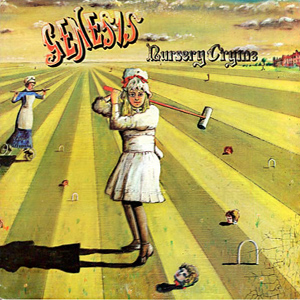


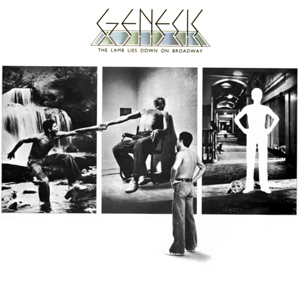
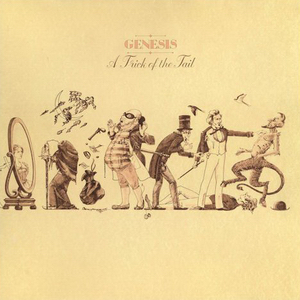






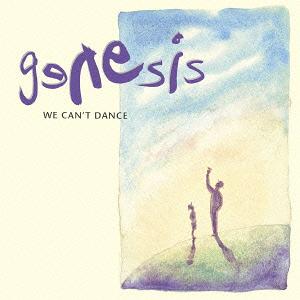




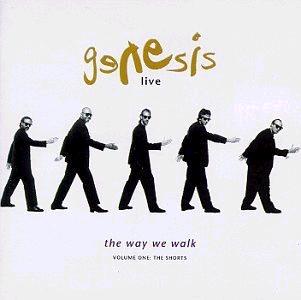

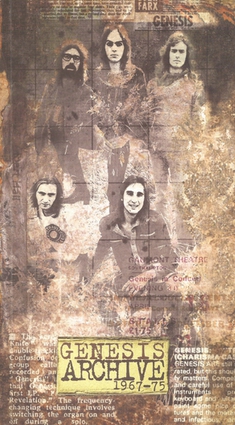
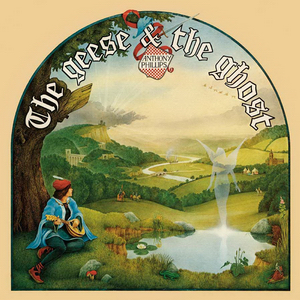
.jpg)


.jpg)

_Cropped.jpg/220px-Phil_Collins_-_Royal_Albert_Hall_-_Wednesday_7th_June_2017_PhilCollinsRAH070617-20_(35255872705)_Cropped.jpg)
